Cephadex 500
The antibiotic Cephadex 500 mg is a member of the cephalosporin class. It is employed in the treatment of bacterial infections of the nose, lungs, ear, bones, joints, skin, urinary tract, prostate gland, and reproductive system. Additionally, Cephadex 500 mg is used to treat tooth infections. Bacterial infections are caused by the multiplication of harmful microorganisms within or on the body. Bacteria that are either contagious or toxic can rapidly grow and cause illness. These dangerous bacteria create toxins, which can cause tissue damage and illness. Cephadex 500 mg is ineffective against viral infections including the common cold and influenza.
Cephadex 500 mg is a natural bactericide. Cephadex 500 mg inhibits enzymes involved in the formation of peptidoglycan, an essential component of the bacterial cell wall. Consequently, the bacteria is eradicated, and the disease is treated and avoided.
It is available as capsules, pills, or liquid for children and anyone who have difficulty swallowing tablets or capsules. The amount and duration of Cephadex 500 mg may vary based on your health and the severity of your sickness. In addition, because it is an antibiotic, it is recommended that you complete the treatment even if you feel better. A delay in treatment might result in a more severe illness that is resistant to medications (antibiotic resistance). In rare instances, you may have common side effects such as diarrhea, nausea, vomiting, indigestion, stomach pain, and skin rashes. The majority of these side effects do not require medical intervention and will disappear with time. However, if you have these side effects frequently, you should visit your physician.
Inform your doctor if you have an allergy to any antibiotic or if you have renal or liver problems before using Cephadex 500. Self-medication with Cephadex 500 mg may result in antibiotic resistance, which is the ineffectiveness of antibiotics against specific bacterial infections. If your doctor has not suggested it, you should not use Cephadex 500 mg if you are pregnant or breastfeeding. Under-five-year-olds are not advised to use Cephadex 500 mg. Some laboratory tests, including liver function tests, glucose tests, and coombs tests, may be influenced by Cephadex 500 mg.
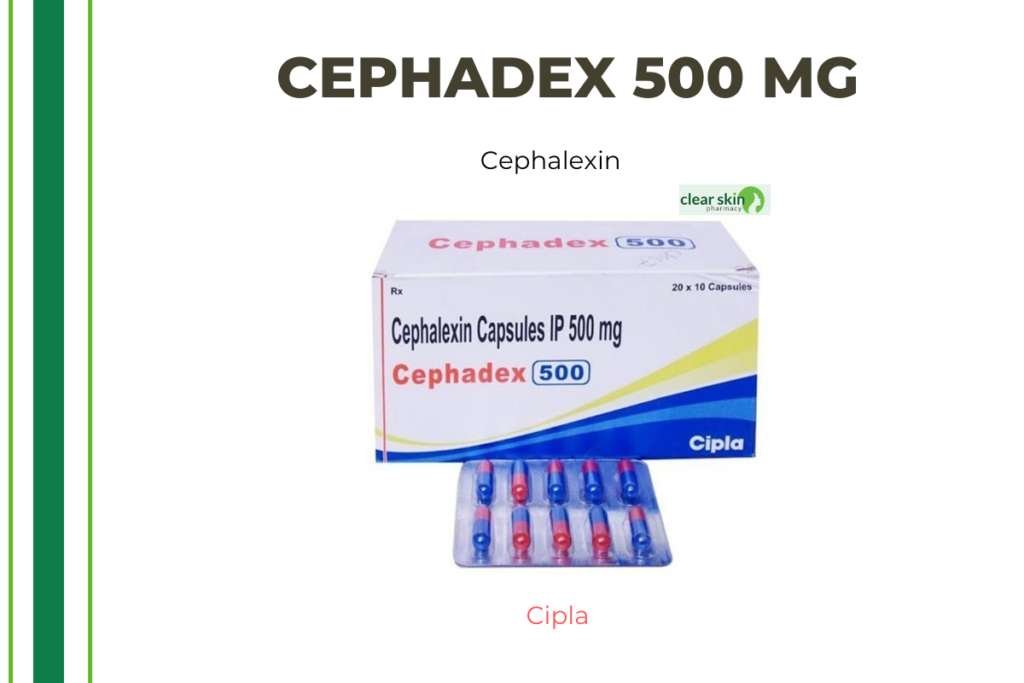
Cephadex 500’s Applications
Infections caused by bacteria.
Medicinal Advantages
Cephalexin is a member of the cephalosporin family and is used to treat bacterial infections of the nose, lungs, ear, bones, joints, skin, urinary tract, and prostate gland. Cephalexin has antibacterial properties. Cephalexin inhibits the action of enzymes involved in the synthesis of peptidoglycan, an essential component of the bacterial cell wall. Consequently, the bacteria is eradicated, and the disease is treated and avoided. Cephalexin is a broad-spectrum antibiotic that kills susceptible strains of gram-positive staphylococci and streptococci, including Staphylococcus aureus, Streptococcus pneumoniae, Streptococcus pyrogens, Haemophilus influenzae, Klebsiella pneumoniae, Moraxella catarrhalis, and Proteus mirabilis.
Use Instructions
Cephalexin may be administered with or without food. Cephalexin pills should be swallowed whole, without crushing or chewing. The liquid form of cephalexin should be taken orally with the measuring cup supplied in the package; shake the bottle well before each use. The dosage and length of cephalexin depend on the patient’s health and the severity of the infection.
Storage
Place in a cool, dry area out of direct sunlight.
Cephadex 500 Side Effects
Similar to other medications, cephalexin can have side effects, albeit not everyone has them. The side effects of Cephadex 500 include diarrhea, nausea, vomiting, indigestion, stomach pain, and rashes. The majority of adverse effects of Cephalexin do not require medical treatment and subside with time. Please consult your physician if the side effects persist or worsen.
Drug Recommendations
If you have porphyria, you must avoid using Cephalexin (hereditary metabolic disorder). Inform your doctor if you have an allergy to any antibiotic or if you have renal or liver problems before using Cephadex 500. Consult a physician if you develop a rash or have severe diarrhea accompanied by abdominal pain. Consult a physician prior to using Cephalexin if you have or have had inflammation of the digestive tract. Long-term usage of Cephalexin may result in interactions with drug-resistant bacteria and fungus. If you’re pregnant or breastfeeding, don’t use Cephalexin unless your doctor instructs you to. Children younger than five years of age should not be given cephalexin.
Interactions Between Drugs
Antibiotics (capreomycin, vancomycin, gentamicin, neomycin, tobramycin, cefuroxime), antifungals (amphotericin), anti-gout agents (probenecid), anti-diabetic agents (metformin), and diuretics (amphotericin) may interact with cephalexin (furosemide, bumetanide).
There have been no food-drug interactions found or documented.
Cephalexin may interact with, among other conditions, colitis (inflammation of the lining of the colon), seizure disorders, dialysis, renal, and liver failure.
Safety Suggestions
ALCOHOL
While using Cephadex 500, limit or abstain from alcohol use.
PREGNANCY
Cephalexin is a pregnancy category B medication. Consult your physician if you are pregnant; Cephalexin will only be recommended if the benefits exceed the risks.
BREAST FEEDING
Cephalexin is present in human breast milk. Consult your physician if you are breastfeeding; Cephalexin will only be recommended if the benefits exceed the risks.
DRIVING
The effects of cephalexin on the capacity to operate machinery or drive are nonexistent.
LIVER
Consult your physician before using Cephalexin if you have liver disease or impairment.
KIDNEY
It is conceivable that you will require a dose adjustment. Consult your physician before to using Cephadex 500 if you have any concerns about kidney disease or impairment.
No habit formation
Advice on Diet and Lifestyle
Antibiotics have the potential to alter the good bacteria that promote digestion in the stomach. Recommended probiotic-rich foods include yogurt/curd, kefir, sauerkraut, tempeh, kimchi, miso, kombucha, buttermilk, natto, and cheese.
High-fiber foods include whole grains, beans, lentils, berries, broccoli, peas, and bananas.
Calcium-rich foods, grapefruit, and grapefruit juice should be avoided, as they may inhibit the absorption of antibiotics.
To effectively treat your ailment, abstain from alcohol consumption.
Nicotine should be avoided.
Complete the whole course of Cephalexin to treat your illness, even if you have symptomatic relief.
Recommendations
Certain laboratory tests, including liver function blood tests, glucose tests, and coombs tests, may be impacted by cephalexin. Inform the individual administering the tests that you are taking Cephadex 500.
Other details : This item is non-refundable.
Glossary of Diseases and Conditions
Bacterial infections are diseases caused by pathogenic bacteria that invade, proliferate, and infect the human body. Bacteria that are either contagious or toxic can rapidly grow and cause illness. These dangerous bacteria create toxins, which can cause tissue damage and illness. It may target any part of the body and reproduces rapidly. If you are contaminated with germs, you may have symptoms including fever, chills, and fatigue. The most frequent bacterial morphologies are spherical, rod-like, and spiral-shaped. Bacterial infections vary from minor symptoms like sore throats and ear infections to severe disorders like meningitis and encephalitis. A bacterial infection is capable of affecting anyone, at any moment. In contrast, persons with compromised immune systems or those using immunosuppressive drugs are more susceptible to bacterial infection.
FAQs
Cephalexin inhibits the action of enzymes involved in the synthesis of peptidoglycan, an essential component of the bacterial cell wall. Consequently, the bacteria is eradicated, and the disease is treated and avoided.
Diarrhea is a potential side effect of Cephadex 500. If you have diarrhea, consume copious amounts of water and fiber-rich meals. Stop using Cephalexin and consult your doctor if you observe blood in your stools (tarry stools) or if you have prolonged diarrhea accompanied by stomach pain. Do not provide anti-diarrheal medicine to yourself.
As Cephalexin is an antibiotic, it is recommended that you complete the whole course of treatment, even if you feel better. Leaving it between doses might result in a more severe disease that is resistant to the antibiotic (antibiotic resistance).
If you are pregnant or attempting to get pregnant, you should not use Cephalexin without your doctor’s approval. Cephalexin is only prescribed when the benefits outweigh the risks.
If recommended by a doctor, cephalexin is safe to provide to children older than 5 years old. Dosage and duration may vary based on the child’s weight and the severity of the infection.
Self-medication with Cephalexin can lead to antibiotic resistance, a condition in which antibiotics become ineffective against certain bacterial infections.
Certain laboratory tests, including liver function blood tests, glucose tests, and coombs tests, may be impacted by cephalexin. Inform the individual administering the tests that you are taking Cephadex 500.
The effectiveness of oral contraceptives may be diminished by cephalexin (birth control pills). This might lead to an unplanned pregnancy. Consult your physician if you have any concerns; he or she may recommend an alternative method of contraception.

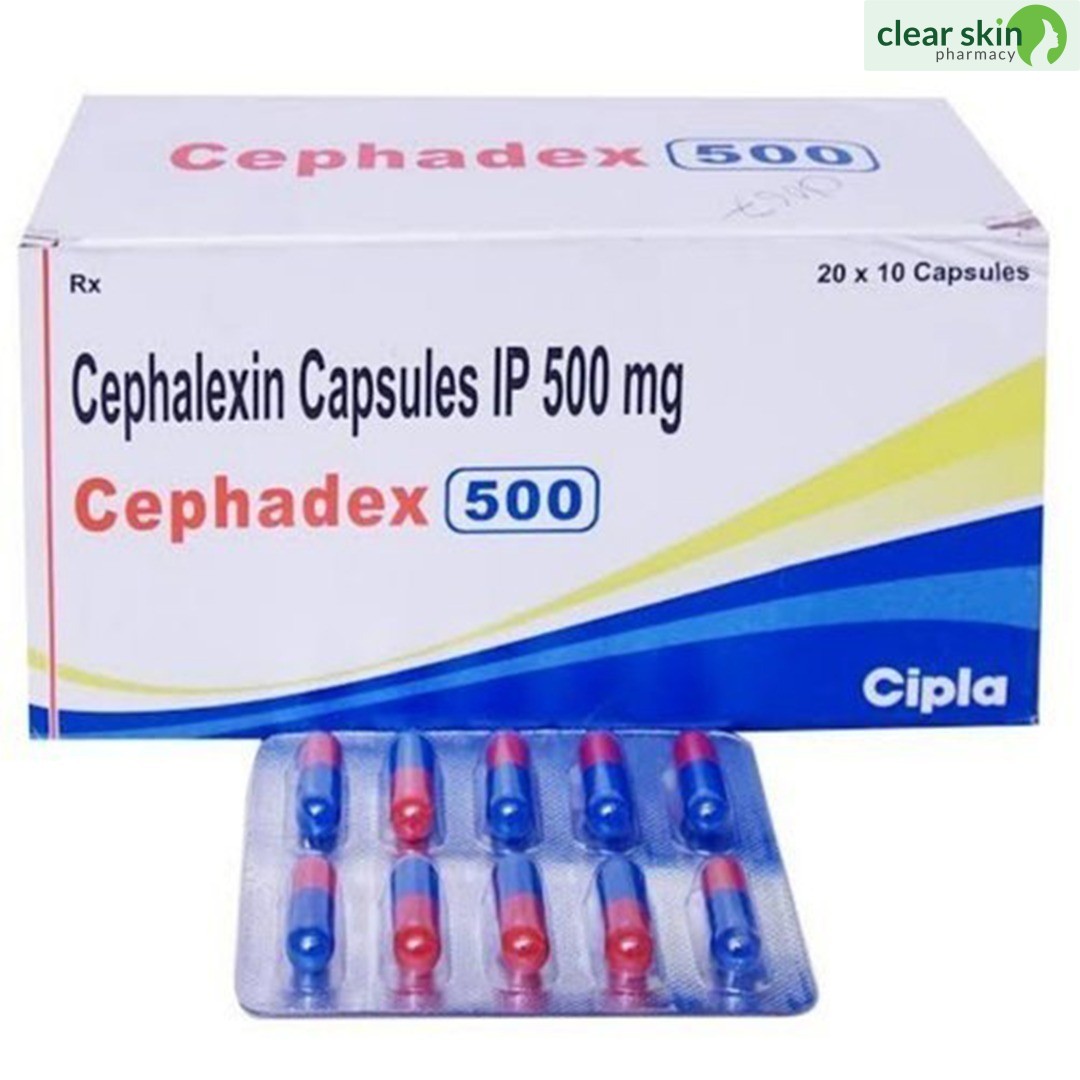
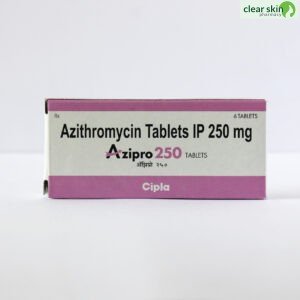

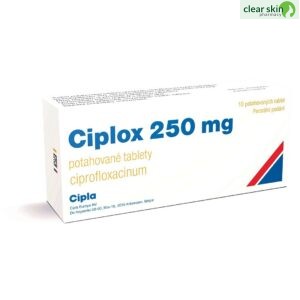
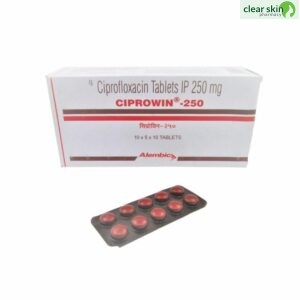

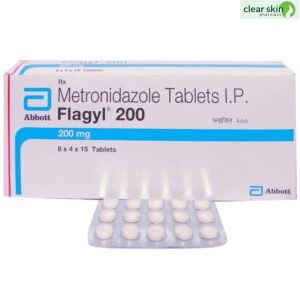
Be the first to review “CEPHADEX 500 mg 10 tables”